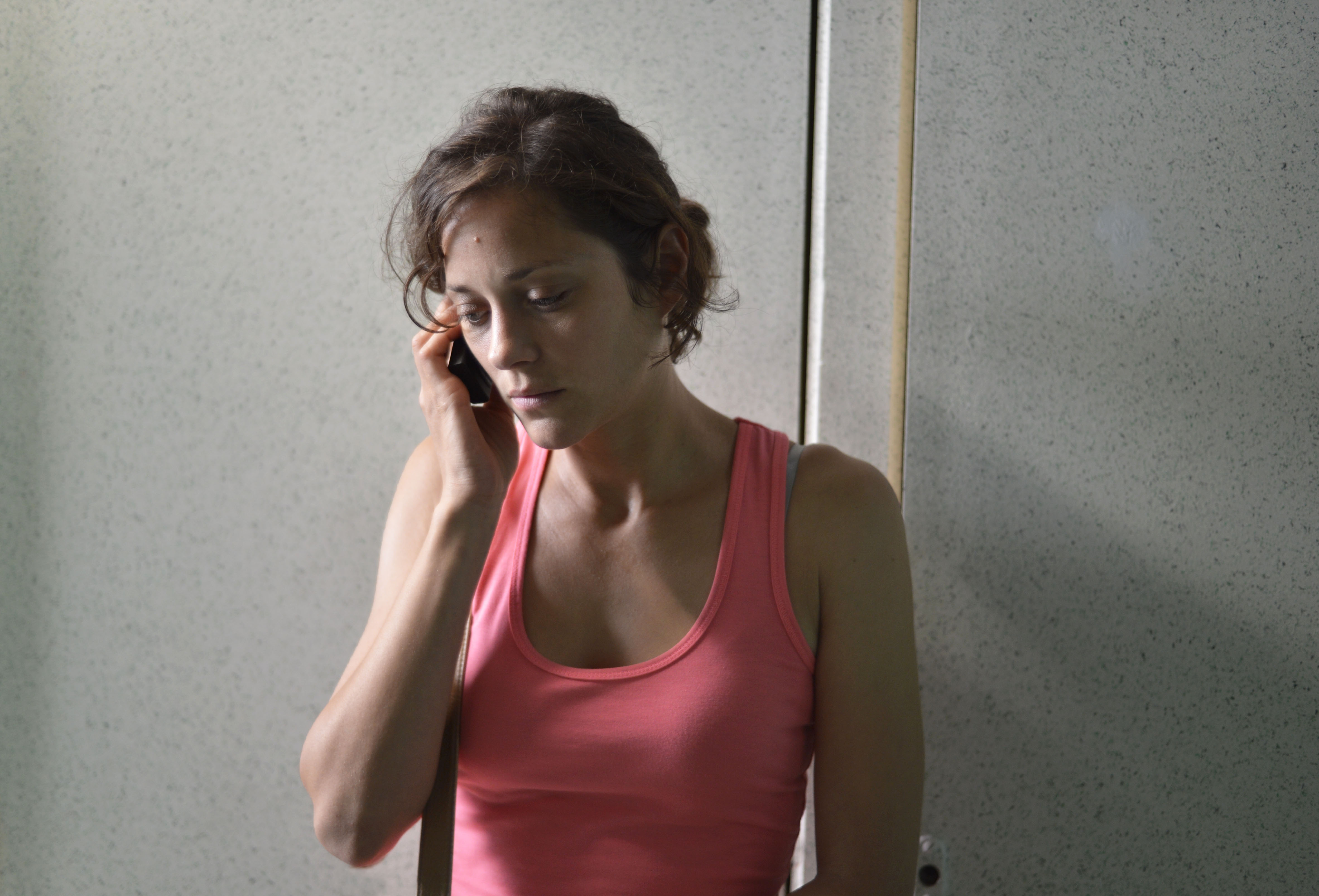There is only one situation in Two Days, One Night—no subplots, no vast canvas. But filmmaking brothers Jean-Pierre and Luc Dardenne (The K
id With the Bike) need only this one situation to somehow speak of the entire world and what it means to be human in the early 21st century. The situation is this: Sandra (Marion Cotillard) has been on medical leave from her workplace, owing to depression. She has a low-level job in a manufacturing plant in Belgium. She’s ready to go back to work, but management has decided to cut her position. According to labor laws, her 16 fellow employees can vote to keep her on the job—but the boss has offered them each a 1,000-euro bonus if they agree to lay off Sandra. She has a weekend to plead her case to each co-worker.
We follow her for 48 hours, as Sandra makes her individual entreaties. Every few minutes we are reminded of the cruelty of being put in this position, and the humiliation of having to repeat her argument. Because depression is tugging at her heels, the process is even harder—Cotillard’s performance makes you see Sandra’s illness dragging against her body. Her husband Manu (Fabrizio Rongione) cajoles her into keeping her rounds; he understands his wife, unflaggingly loves her, and embodies a quiet determination in his own right. The matter-of-fact method of the Dardennes, who practice a kind of artful realism, makes these efforts seem all the more heroic. The one exception to their plain method is that they’ve employed a bona fide, Oscar-winning movie star in the central role, but the deglammed Cotillard is more than up to the task of convincing us of Sandra’s modest place in the world.
The Dardennes’ human stories have always had a political purpose, and this film’s portrait of the power of manipulation and greed is one of their clearest. But it all comes down to people, and on that score the brothers refuse to simplify. Some of the people in Two Days, One Night are kind, some are ashamed, some are jerks. Many of the employees casting votes could really use 1,000 euros. They’ve got problems of their own. That’s what is so devastating about this superb film: We might have Sandra’s dilemma as the focus of our attention, but every one of these people has a comparable story. In these circumstances, that realization is heartbreaking.
film@seattleweekly.com
TWO DAYS, ONE NIGHT Opens Fri., Jan. 30 at SIFF Cinema Uptown. Not rated. 95 minutes.







